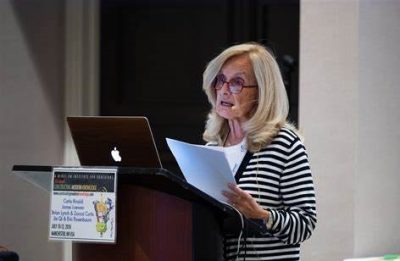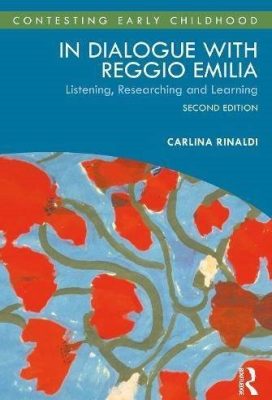

I recently had the privilege of attending a very thought-provoking Education Scotland event in Glasgow, where two global experts of early childhood education, Professor Carla Rinaldi, and Professor Ger Graus OBE, shared their wisdom. Renowned in their fields, Professor Rinaldi is a key figure in the development of the Reggio Emilia approach, while Professor Graus is celebrated for his work on digital engagement.
Gillian Hamilton, the Chief Executive at Education Scotland, set the stage with a compelling introduction on the significance of reflective practice, both within Scotland and on a global scale. She also highlighted the longstanding links between educators and practitioners in Scotland and Reggio Emilia, dating back to the last century, emphasising the valuable and transformative practice that have enriched early childhood education in Scotland.
Professor Graus shared his thoughts on deprivation, urging educators to constantly explore new approaches and paid tribute to Professor Rinaldi, and her influence on him, especially around the importance of valuing children. Professor Rinaldi spoke passionately about education being the lifeline connecting us to life itself. She emphasised the unique treasure of diversity and discussed the important role of early years education as a realm for rediscovering ethical values. Professor Rinaldi spoke about the power of community and the collective responsibility to educate a child, highlighting the importance of qualitative education and the role of teachers as collaborators in research. In the digital age, trust in children emerged as a central theme, with technology deemed essential but not a substitute for genuine human connections and she emphasised the cultivation of empathy. Professor Graus advocated for a change in mindset, calling for a move away from large, impersonal schools, instead, he championed the idea of individualised attention. They both agreed on the pivotal role educators play in a child’s life, emphasising the importance of embracing diversity, celebration of uniqueness and empathy, with to quote Professor Graus, “longer tables, not higher walls.”
Reflecting on the challenges presented by COVID-19, Professor Graus likened it to a 999 emergency where education acted as the ambulance that came to save the day. However, he pointed out the undervaluation of Early Years, calling it fundamentally wrong and both agreed that there is a need for visibility and recognition of early childhood education. Professor Rinaldi emphasised that childhood only exists when politically and culturally recognised, highlighting the responsibility of teachers to be activists supporting educational policy. Both Professors emphasised the crucial role of parents as allies, advocating for increased involvement and making learning visible to them, with Professor Rinaldi suggesting that schools should be a welcoming space for parents and children and integral to the fabric of the community.

I attended this enlightening talk with my friends Louise Brownlie, an incredible Primary, Nursery and now an ASN teacher at Orchard Primary in Wishaw and Catriona Campbell, the dynamic Head Teacher at East Park, who I have been lucky to get to know through our love of the Play Pedagogy Award. The insights gained from Professor Rinaldi and Professor Graus are sure to resonate and inspire positive change in our varied roles and in our approach to education.
Here’s to creating longer tables, cultivating empathy, and never killing the desire to learn!




